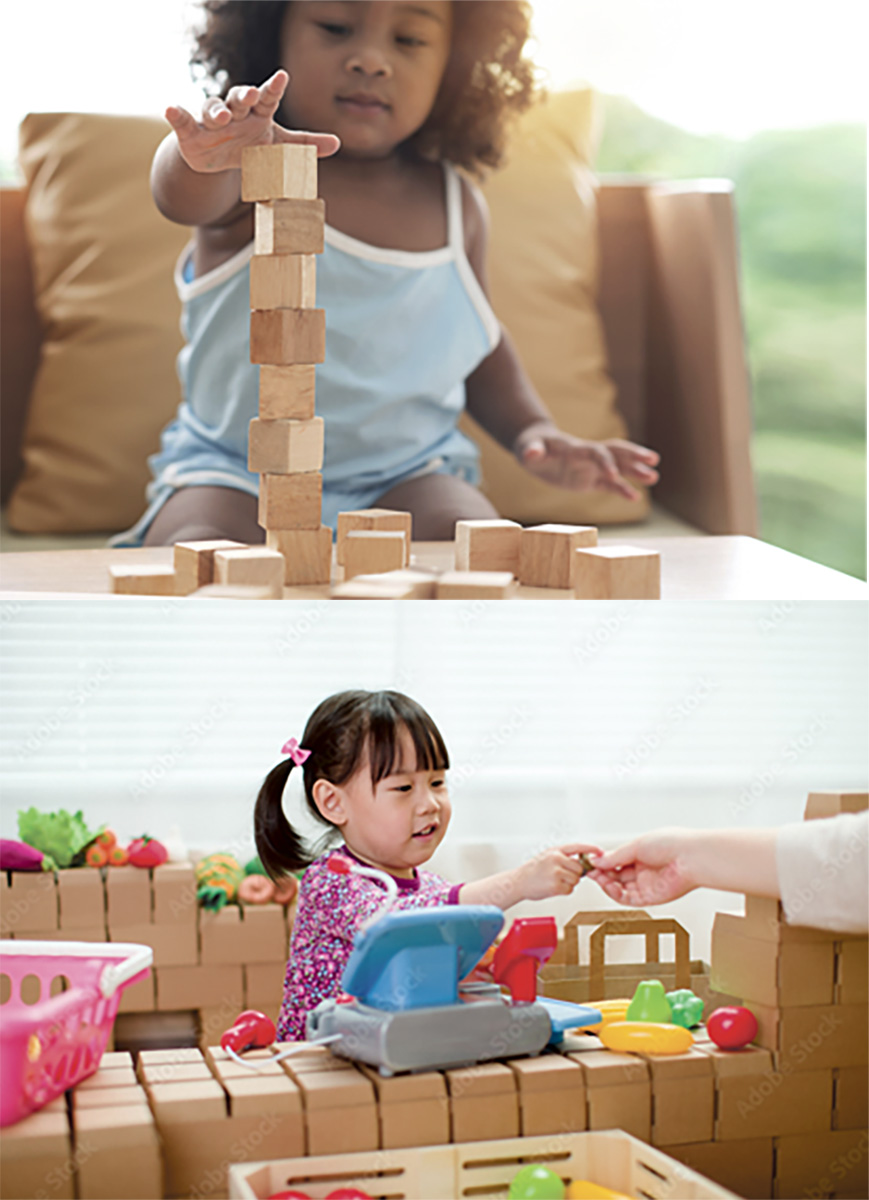
By Hayley Jackson Perez, Extension Educator in Lancaster County
Watch your young child play — lost in imagination while pretending, carefully building a tower or running freely outside. It looks like pure fun, and it absolutely is! But it’s also so much more. For young children, play isn't just a break from learning; it is how they learn best. It’s the powerful engine driving their healthy development in every way.
It's easy to fall into the trap of thinking that “real learning” only happens with structured lessons or flashcards, and that play is somehow less valuable. Many parents worry that if their child is “just playing,” they aren't adequately preparing for school. This is a common misconception! In truth, play is the most effective and natural way young children explore, experiment, understand their world, build essential skills and develop a lifelong love for discovery. For them, playing is serious learning.
When children engage freely in play, they are developing crucial skills across every domain:
• Cognitive Growth: That intricate structure built from blocks isn't just a random stack; it’s an active lesson in early math concepts (size, shape, counting), physics (balance, gravity), spatial reasoning and creative problem-solving (“How can I make it taller without falling?”). Pretend play fuels complex language development and abstract thinking as they create scenarios and narratives.
• Social-Emotional Skills: Dramatic play — whether it's playing family, superheroes or running a pretend store — is a vital practice ground. Children learn to cooperate, negotiate roles (“Ok, you be the baby this time”), understand others' perspectives (empathy), express their feelings and manage social situations.
• Physical Development: Running, jumping, climbing, swinging and digging during outdoor exploration builds strong muscles, coordination, balance and overall body awareness. They learn to navigate their physical world, test their limits safely and engage their senses, which is crucial for brain development.
So, the next time you see your child deeply engrossed in play, resist the urge to interrupt with something more “educational.” Recognize and celebrate it as the vital work of childhood. Protect their time for unstructured play, offer simple, open-ended materials (like blocks, dress-up clothes, art supplies and access to nature) and perhaps even join the fun yourself. By valuing play, you are providing the richest, most effective foundation for their future academic success, emotional well-being and overall growth. Play is powerful learning in action.